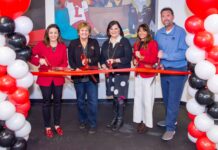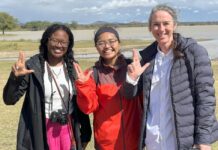
As part of the University of Louisville’s 21st Century Initiative, a new functional area has been created in the Office of the Vice Provost for Diversity and International Affairs. Diversity Education and Inclusive Excellence was designed to support campus-wide diversity education and training and is based on recommendations from the 21st Century Culture of Excellence and the President’s Diversity Steering committees.
Marian Vasser has agreed to serve as the inaugural Director for Diversity Education and Inclusive Excellence, effective immediately. Prior, she was the senior program coordinator for Diversity Programs in the College of Arts & Sciences.
“Those of you who have worked with Marian over the years or attended one of her workshops know that she is a gifted trainer and educator and we are pleased to welcome her to this new role. Whether as a staff member in the College of Arts & Sciences Dean’s Office for International, Diversity and Engagement Programs, or as a voice on numerous campus committees, Marian is a passionate advocate and the logical choice to lead this initiative,” said Mordean Taylor-Archer, Vice Provost for Diversity and International Affairs.
Vasser will work with Brian Buford, UofL’s Assistant Provost for Diversity, to develop and implement a comprehensive diversity education plan for all members of the campus community, including faculty, staff and students.
“I am blessed to have my career align perfectly with my passion for social justice and believe our university has the potential to be a national model in this area,” Vasser said. “It is an honor to serve in this capacity and I am excited about the opportunity to advance the university’s mission of diversity and inclusive excellence.”
Vasser and Buford have already started working with campus partners to develop a training program for new students that will be introduced at this year’s Welcome Week in August.
Their objective for Welcome Week and beyond is to develop a plan to enhance our efforts in building an inclusive campus climate based on fairness, equity and social justice. The education/training module will include tools to help eliminate unconscious/implicit bias, micro-aggressions, cultural appropriation as well as understanding the latent effects of privilege.































